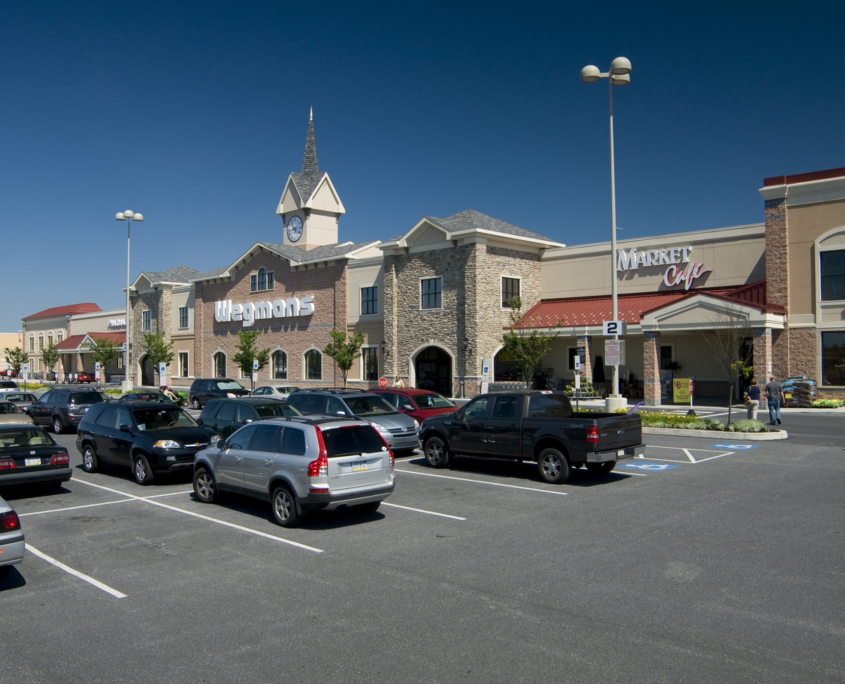Investing time on the front end offers real savings in time and money on the back end
/in Insights-Commercial, Insights-Industrial & Manufacturing, Insights-Land Development /by Jared Kroh
This article appeared in the September 17, 2008 issue of the Mid-Atlantic Real Estate Journal and is published here with their permission.
You have invested significantly in a site and you spent several months in the design phase. You are anxious to get your property built so you can maximize the profit it earns you. Unfortunately, you find yourself tangled in a web of entitlements and regulatory constraints that could drag on for several more months.
How can you avoid a costly and frustrating scenario like this? The answer is by obtaining a thorough due diligence investigation. We all know time is money in the development game, so it can be very tempting to speed through preliminary investigations in order to get to construction faster. Unfortunately, this can delay your project significantly when unexpected issues arise during the approval phase.
A more reliable strategy would be to hire a qualified professional engineer who is experienced in real estate due diligence to conduct an investigation and develop a time-saving strategy that comprehensively addresses the risks and variables you are likely to face. If possible, this investigation should be conducted during the initial site selection activities and should look at a wide variety of issues related to taxes and financing, parcel size and configuration, topographic and environmental constraints, zoning and land use requirements, infrastructure (e.g. utilities and transportation), and the local political climate.
As the project progresses, the engineer will further define the details related to land title issues, floodplain restrictions, geologic conditions, wetlands presence, on- and off-site infrastructure improvements, and permitting procedures. This will lead to the development of a concept plan to maximize the yield of the site and provide an estimate of probable development and construction costs (as well as a realistic project timeline).
One of the benefits of hiring experienced professionals to perform this investigation is their experience with the local political landscape and regulatory climate of the governing bodies that have jurisdiction over the site. One of the most significant factors determining the timeline of your project is the length of the entitlement phase. Someone who knows the decision-makers who will ultimately approve your project can devise a strategy to minimize review time and gain support. An experienced professional can also bring the key stakeholders together to foster a dialogue that will make the process proceed more efficiently.
As a result, in spite of the time involved in conducting the due diligence investigation, you can often obtain required approvals and begin construction in less time than if you rushed this step. In an industry where every day of delay could potentially cost thousands of dollars, a thorough due diligence investigation could be the best investment you make in your development.
Contact Chris Dellinger, P.E., with your questions about land development.
Project Fast-Tracking: Developing in the Left Lane
/in Insights-Commercial, Insights-Land Development /by Jared Kroh
This article appeared in the December 27, 2007 issue of the Mid-Atlantic Real Estate Journal and is published here with their permission.
How fast do you drive down the expressway? Do you cruise the speed limit in the right lane, or do you accelerate past the speed limit in the left lane?
In today’s fast-paced real estate market, driving the speed limit is no longer an option. You must accelerate your project through the design and approval phases quickly or risk rising costs (and lower profits). Many changing factors pressure your projects. Tenant requirements, practical financing and regulatory burdens are just a few. Drive too slowly and you risk losing a tenant, acquiring a higher finance rate, or facing more stringent regulatory requirements. Put the right team behind the wheel, and you can drive your project to success, rather than end up as an accident on the 6:00 news.
In years past, developers and owners fast-tracked a project to meet the requirements of others (such as a potential tenant), but today fast-tracking is initiated by the developers and owners themselves in order to maximize their profits. Putting your project on the fast track can be done in many ways: It could mean awarding the contract as a design-build or adding provisions to the contract that impose a penalty if the consultant doesn’t complete the project by a given deadline. Whatever approach you take, planning and foresight are necessary to avoid potential obstacles and ensure different disciplines coordinate their work to reduce delay. This is why having a strong team on your side is the best way to meet your goals.
By working closely from the earliest stages of project development, your team can simultaneously work on the project components to complete your project most efficiently. Some companies work well as one member of the team, while others do well as the entire team. If you already work with the best site entitlement company and architect, you obviously want them to work together in your best interest. This can be very effective by utilizing different discipline experts. Another great option is companies that provide a wide range of services under one roof. This makes the coordination effort of each component much smoother. Just as you get a flat tire, projects often develop issues that are unexpected. Companies with multiple services are able to react to changing conditions quickly. Find wetlands on a project: have the environmental group delineate and mitigate; acquire the adjoining parcel: have the survey group add it to the plan; realize a bridge is better then a culvert: have the structures group design it. This flexibility decreases the coordination effort of identifying and contracting with separate consultants for each project component.
Before starting a project, sit down with your consultant and expect them to answer your questions honestly. Can you get that permit by spring? Will there be issues like zoning you can avoid by taking a different route? Be sure to develop a relationship of trust with your consultant, and expect the same in return.
By working cohesively as a team and developing a realistic schedule that addresses all issues, you will reach your destination in the quickest timeframe. Find a consultant that will slow down to address those issues that may truly stall your project but be aggressive in moving your project through the approval process. In the end, your project will be up and running like a well-oiled machine.
 Andrew Kenworthy, P.E., has extensive expertise in the areas of site planning, layout and design, zoning and regulatory requirements, permitting, stormwater management, erosion control, roadway and utility design, and bidding and construction administration. He can be reached by phone at (717) 564-1121 or by email at akenworthy@hrg-inc.com
Andrew Kenworthy, P.E., has extensive expertise in the areas of site planning, layout and design, zoning and regulatory requirements, permitting, stormwater management, erosion control, roadway and utility design, and bidding and construction administration. He can be reached by phone at (717) 564-1121 or by email at akenworthy@hrg-inc.com
